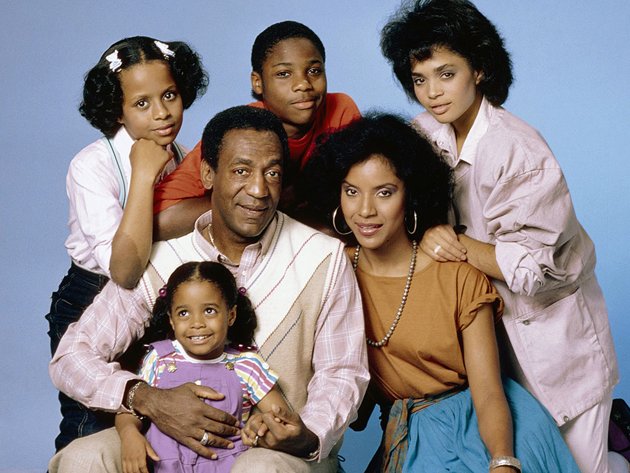By providing your information, you agree to our Terms of Use and our Privacy Policy. We use vendors that may also process your information to help provide our services. This site is protected by reCAPTCHA Enterprise and the Google Privacy Policy and Terms of Service apply.
What Bill Cosby’s Fall Says About the New Age of Television

Anyone engaged with pop culture news at this stage has heard the word “Cosby” so many times over the last week that it might almost have lost all meaning. Until, of course, yet another revelation comes out in the Internet vs. Bill Cosby, legendary performer and accused rapist of countless women.
Since breaking the race barrier on television in 1965 with NBC’s “I Spy,” Cosby has been a icon. His fame has ebbed and flowed over the decades since, most notably peaking in the 1980s with “The Cosby Show,” a sitcom also airing on NBC that is considered one of the great achievements of the era.
What the media storm surrounding Cosby over the last week or so proves, though, is that that era is as dead as Cosby’s many recently canceled projects — including a new NBC series, which yesterday was reported to be dead in the water. Cosby was the past. And thanks to both his actions and the media landscape of today, he’s going to stay there.
READ MORE: Should NBC Go Ahead With That New Cosby Sit-Com? (And Will You Be Watching?)
Probably most affected by these recent developments is NBC — as the outcry over the Cosby allegations built, many were carefully eyeing the status of the proposed Tom Werner-produced sitcom. The network had a lot to lose — not just money (Cosby gets what Variety called “a hefty penalty fee” if the show doesn’t go to series), but a chance at recapturing some much-needed ratings power.
One of the most true jokes “30 Rock” ever told was Jack Donaghy’s pie chart of NBC priorities, with its second-biggest slice devoted to “Make It 1997 Again Through Science or Magic.” But 1987 wasn’t so bad for NBC either, thanks to “Cheers,” “Night Court” and “The Cosby Show,” which had been the number one show on television for a few years already. NBC’s decision to bring Cosby back to its lineup this past summer almost read like a referendum on modern-day broadcast television — an act of desperation.

At that time, Cosby seemed like a good bet: The spin was that of an elder stateman returning to the sitcom format to show us all how it’s done. It’s a narrative with gels with an interesting Philadelphia Magazine Cosby profile from 2006 (one of the first major pieces to feature stories of women who accused Cosby of sexual assault), which portrayed Cosby as a man hoping to spread wisdom to his community and the world at large, but in a decidedly one-sided fashion: He was lecturing audiences, telling his stories and the stories of others who had pulled themselves out of tough situations to find new lives. Lecturing, not to be questioned, because Cosby is under no obligation to address anything he doesn’t want to address.
It’s the sort of attitude that was baked into the very premise of the NBC Cosby series: Cosby as a wise grandfather dispensing advice to a “multicultural brood” of children and grandchildren. It’s also a concept which reeks of patronization — a declaration that the kids today need to get told stuff by someone who knows better.
Even if the NBC Cosby project had made it to air, it never would have withstood the weekly barrage of criticism that would have followed. The Guardian’s Lili Loofbourow, via Criticwire, argued recently that TV recap culture has created an “ethical community” of viewers, who engage with shows not just as entertainment, but as cultural texts.
And one truth of the modern media landscape is that silence just doesn’t play anymore. Creators and audiences, like never before, now engage in dialogue with each other on a new and unprecedented level.
That dialogue doesn’t mean that fan complaints will resurrect a dearly departed character on “The Good Wife,” or that Don and Roger of “Mad Men” will acknowledge their true feelings and make out at last, because the fans demand it. But in the modern media landscape, both sides of the line show some sign of respecting and acknowledging each other. When issues about consent on “Game of Thrones” last season got people talking, that included those behind the scenes of the show — not apologizing for what happened, but showing proof that they’re listening.
In general, we’re all listening a little better these days. One clear sign of how our culture in general has changed over just the last two decades or so is that women who previously felt silenced and scared by the thought of accusing a powerful man of an unspeakable act — because there was a legitimate chance that no one would believe them — are able to speak up. By that same token, Cosby’s potential audiences have been able to say that they’re less than interested in watching him anymore. By rejecting an icon of the old ways, NBC has shown that it understands the new age. And that comes as bad news for Bill Cosby, but great news for the rest of us.
READ MORE: Lena Dunham, Emily Nussbaum and the Mixed Messages of 1980s TV
By providing your information, you agree to our Terms of Use and our Privacy Policy. We use vendors that may also process your information to help provide our services. This site is protected by reCAPTCHA Enterprise and the Google Privacy Policy and Terms of Service apply.


















